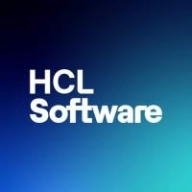

Teradata and HCL Campaign are competing products in the data management and marketing automation categories. Teradata is more suitable for large-scale operations due to its scalability, while HCL Campaign stands out for its marketing-centric features.
Features: Teradata strengths include data analytics capabilities, comprehensive data integration, and advanced analytics to handle complex data needs. HCL Campaign focuses on automation, precision in targeting customer segments, and tools for personalized marketing efforts.
Ease of Deployment and Customer Service: Teradata requires more time and resources to deploy but is backed by comprehensive customer service. HCL Campaign offers quicker deployment with streamlined setup processes, facilitating efficient campaign management for marketing teams.
Pricing and ROI: Teradata generally incurs higher setup costs due to its extensive data infrastructure capabilities, offering substantial ROI for complex data requirements. HCL Campaign, with its more accessible price point, tailors for marketing teams, providing efficient ROI through its marketing automation focus.
| Product | Market Share (%) |
|---|---|
| Teradata | 2.6% |
| HCL Campaign | 1.8% |
| Other | 95.6% |

| Company Size | Count |
|---|---|
| Small Business | 28 |
| Midsize Enterprise | 13 |
| Large Enterprise | 52 |
IBM Campaign helps marketers design, execute, measure and optimize outbound marketing campaigns. This sophisticated omni-channel campaign management solution allows marketers to perform deep segmentation over multiple data sources to deliver tailored messages to huge volumes of contacts.
IBM Campaign enables you to:
Build a targeted, ongoing dialogue with customers and prospects using available data from local, cloud and third-party repositories including previous interactions and responses, current behaviors and events, big data and more.
Manage your full campaign logic and campaign delivery including audience segmentation, ad-hoc field creation, exclusions, assignment of offers and channels, and the ability to directly execute delivery of email, mobile push and SMS campaigns.
Reuse campaign management building blocks including audiences, segments, offers, treatments and exclusion rules.
Accurately measure and report on marketing activities to enhance insights, decision making and marketing accountability.
Choose an on-premise or cloud deployment model of preference.
Teradata is a powerful tool for handling substantial data volumes with its parallel processing architecture, supporting both cloud and on-premise environments efficiently. It offers impressive capabilities for fast query processing, data integration, and real-time reporting, making it suitable for diverse industrial applications.
Known for its robust parallel processing capabilities, Teradata effectively manages large datasets and provides adaptable deployment across cloud and on-premise setups. It enhances performance and scalability with features like advanced query tuning, workload management, and strong security. Users appreciate its ease of use and automation features which support real-time data reporting. The optimizer and intelligent partitioning help improve query speed and efficiency, while multi-temperature data management optimizes data handling.
What are the key features of Teradata?
What benefits and ROI do users look for?
In the finance, retail, and government sectors, Teradata is employed for data warehousing, business intelligence, and analytical processing. It handles vast datasets for activities like customer behavior modeling and enterprise data integration. Supporting efficient reporting and analytics, Teradata enhances data storage and processing, whether deployed on-premise or on cloud platforms.
We monitor all Marketing Management reviews to prevent fraudulent reviews and keep review quality high. We do not post reviews by company employees or direct competitors. We validate each review for authenticity via cross-reference with LinkedIn, and personal follow-up with the reviewer when necessary.